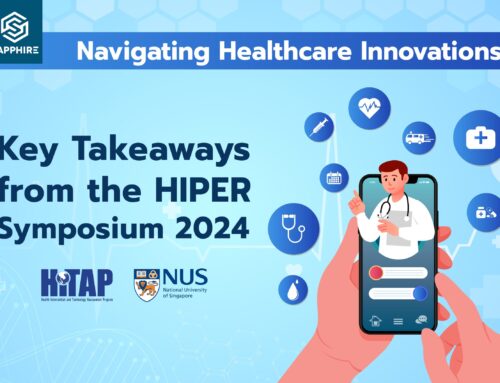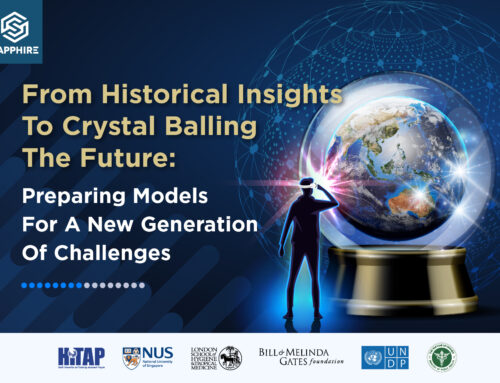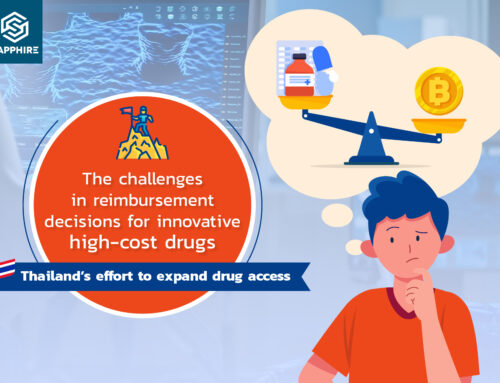Coming to Thailand with utmost excitement in receiving first-hand mentorship from senior HTA researchers from Health Intervention and Technology Assessment Program (HITAP) was truly fulfilling. We were not only taught on enhancing our skills in performing economic evaluation and budget impact analysis, but also received training on evidence translation. Although the three of us only had 4 days to accomplish numerous tasks for all our respective research projects, we think that this was one of the best trainings we have received. We truly appreciate the guidance that we received from HITAP for this training visit.
The Health Technology Assessment Unit or HTAU (formerly known as the HTA study group) was officially launched on November 2018. The Philippine Department of Health (DOH) and HITAP already had a long history of partnership in terms of project collaborations. To name a few, the DOH received previous technical assistance from HITAP and NICE International through the Rockefeller Foundation grant in 2012 to support HTA activities such as the economic evaluation of human papillomavirus vaccine and pneumococcal vaccine. Recently, last September 2018, the United Nation Children’s Fund (UNICEF) provided support for HTA capacity building in the Philippines. Priority topics identified were ultrasound screening for pregnant women, universal HIV screening on pregnant women, and expanded newborn screening program. Although the initial scoping was performed by HTAU, HITAP have been providing preliminary assistance on how to effectively conduct stakeholder consultations and to appropriately determine the type of analysis needed as well as how to manage conflict of interests of stakeholders present.
For the purpose of the training visit, the two topics, which required full assessments (ultrasound screening and HIV screening), received the most amount of technical guidance. Furthermore, the economic evaluation of renal replacement therapy was also reviewed by HITAP as this was also determined to have potential impact to the the health technology assessment practice and current health system in the country.
Intensive training sessions on economic modelling and budget impact analysis were arranged for us where everyone was welcome to ask questions. We learned that although it is important to seek comments from Dr. Yot and his team regarding the topics, our knowledge on the context of the health interventions is critical for the assessment. Lecture on budget impact analysis showed us how results should be presented to decision makers for effective communication of findings. Furthermore, we were encouraged to challenge ourselves by thinking beyond the research and more on the policy implications along with planning the data collection method and determining the appropriate verification and validation plan. Aside from the usual economic evaluation methodologies, we also received a lot of guidance in performing our first HTA which involved a qualitative study design. Skills on developing interview guide and determining components for a feasibility study were relatively new to us, however, HITAP proved that their strength on performing HTA is not limited to economic evaluation types of studies.
Meeting their staff and seeing how they function in their everyday work inspired us to fully commit on building our fully functioning independent HTA office in the future. Our dream that the Philippines will have the capacity and recognition on HTA at the same level as HITAP is not far from possible.
We received a one of a kind training to which our minds are constantly challenged to think of the best ways to approach a problem both technically and politically. It was always emphasized that doing the “research” is just one component to demonstrate health system impact. We learned that it is not about how to perform the research but how the decision makers would easily understand the work that we do. Moreover, asking the right questions is also one skill that we continuously develop. As recipients of an all-expense paid technical assistance program from a distinguished institution, I can say that we accomplished what was expected of us for the study visit. The principles and values learned were something that we would carry as researchers. In fact, just to share, the economic evaluation of renal replacement therapy won the first place in the economic evaluation category recently concluded 8th HTAsialink held in Seoul, Korea.
We hope that in the future, more members from our team may be able to experience what we have undergone. Looking forward to more collaborations with HITAP!





